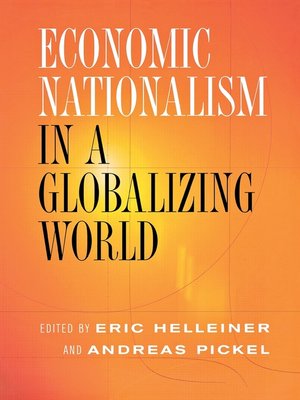Economic Nationalism in a Globalizing World
ebook ∣ Cornell Studies in Political Economy
By Eric Helleiner

Sign up to save your library
With an OverDrive account, you can save your favorite libraries for at-a-glance information about availability. Find out more about OverDrive accounts.
Find this title in Libby, the library reading app by OverDrive.



Search for a digital library with this title
Title found at these libraries:
| Library Name | Distance |
|---|---|
| Loading... |
Is economic nationalism an outdated phenomenon in light of globalization? Economic Nationalism in a Globalizing World demonstrates the enduring, and even heightened, economic significance of national identities and nationalism in the current age. The volume's contributors, pioneers in the reinterpretation of economic nationalism, explore diverse ways in which national identities and nationalism continue to shape contemporary economic policies and processes.
The authors examine the question in a range of geographical contexts and issues: European Union food politics, competitiveness strategies in New Zealand, East Asian development strategies, Japanese liberalization, monetary politics in Quebec and Germany, and post-Soviet economic reforms. Together, the cases explore the policy breadth of nationalism. It is not just a "protectionist" ideology but is in fact associated with a wide variety of economic policies, including support for economic liberalization and globalization.







